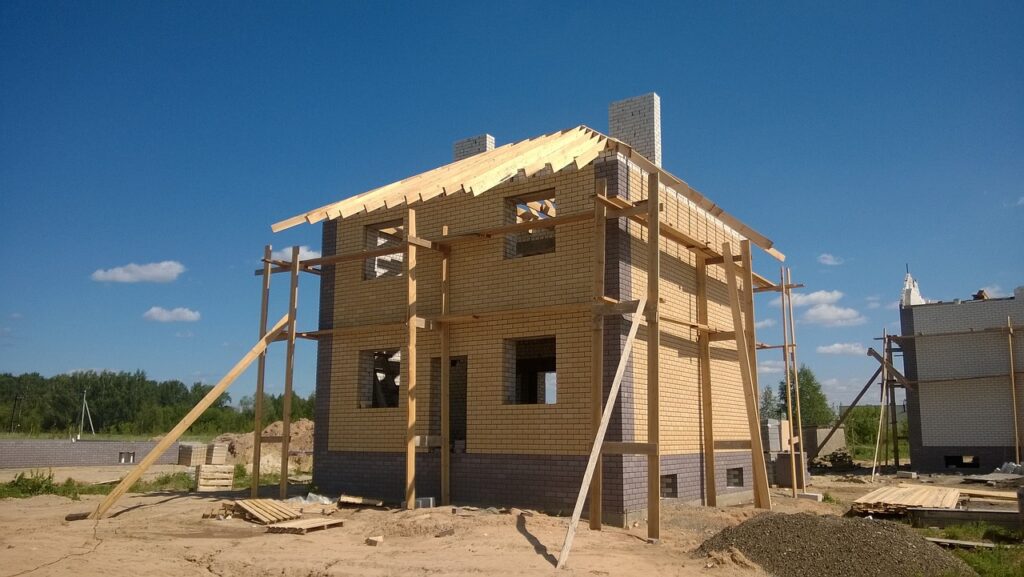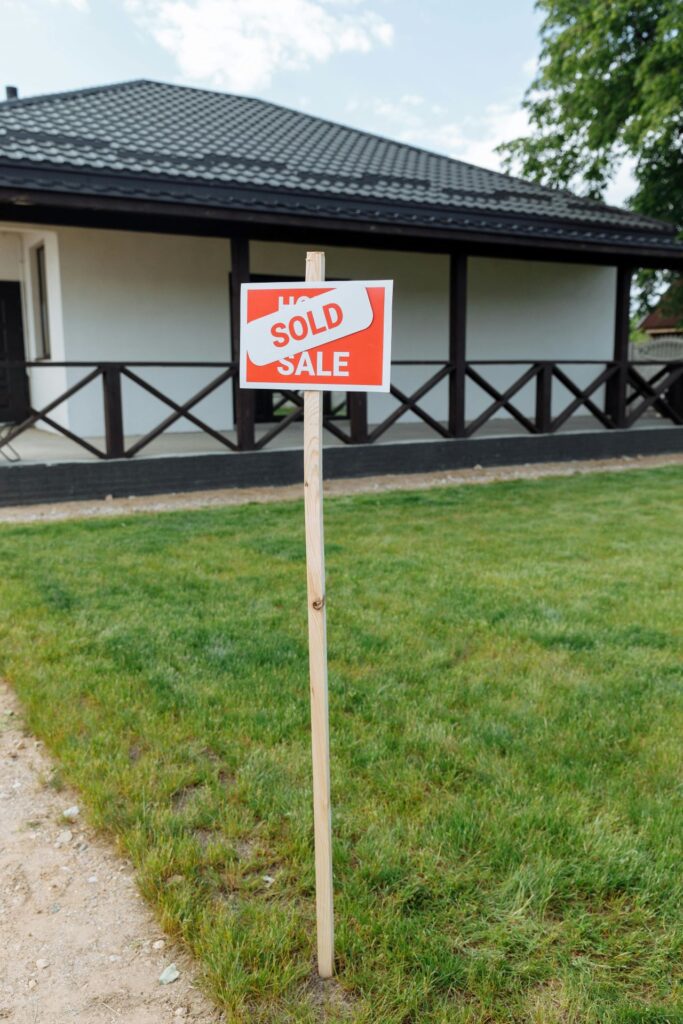Koh Samui, with its breathtaking beaches, lush landscapes, and vibrant local culture, has long been a dream destination for those seeking a tropical escape. It’s no wonder that the island has also become a hotspot for real estate investment. Whether you’re in the market for a vacation home, a rental property, or a long-term residence, investing in property in Koh Samui offers the potential for great rewards—both financial and lifestyle-related.
However, while the allure of owning property on this beautiful island is strong, navigating the real estate market can be challenging, especially for foreign buyers unfamiliar with Thai property laws and local nuances. Many investors make common mistakes that result in unexpected costs, legal headaches, or lost opportunities.
In this guide, we will walk you through the common mistakes to avoid when buying property in Koh Samui, ensuring you make informed decisions, protect your investment, and move closer to achieving your property goals with ease and confidence.
Failing to Understand Property Ownership Laws
One of the most common and costly mistakes buyers make when purchasing property in Koh Samui is not fully grasping Thailand’s property ownership laws. For foreign investors, Thailand has specific rules in place, particularly around land ownership, that can be complex and lead to unexpected issues if misunderstood. It’s crucial to have a clear understanding of these regulations before entering into any real estate transaction to avoid legal complications and financial loss.
Not Knowing Foreign Ownership Restrictions
Under Thai law, foreigners are not allowed to own land outright, a fact that many buyers are not aware of until it’s too late. While you can purchase the building or villa that sits on the land, the land itself must be leased or held through specific legal structures. These can include a leasehold agreement or setting up a Thai company to hold the land title. This restriction often surprises foreign buyers who assume they can own the land directly, leading to legal complications and potentially jeopardizing their investment.
To avoid such pitfalls, it’s essential to work with a qualified property lawyer who can clarify your ownership options. They can guide you through the best legal structure for your purchase, whether it’s securing a long-term leasehold or establishing a company that adheres to local regulations. By doing so, you ensure your investment complies with Thai law and protects your property rights.
Ignoring Leasehold Agreements and Terms
For many foreign buyers, a leasehold agreement is the most practical option for owning property in Koh Samui. Typically, these leases last for 30 years and can be renewed for additional periods, potentially allowing for 90 years of use. However, a significant mistake that buyers make is failing to fully understand the terms of the lease or assuming that renewals are automatic. In reality, lease renewals must often be negotiated and are not always guaranteed.
It’s vital to carefully review the lease terms with your lawyer, paying close attention to renewal options, inheritance clauses, and any conditions that might affect your long-term use of the property. Additionally, ensure that the lease is officially registered with the Land Department to solidify your legal standing. This step provides you with crucial legal protection, as an unregistered lease may leave you vulnerable to disputes or even the risk of losing the property in the future.
By taking the time to fully understand the intricacies of leasehold agreements and working with legal experts, you can safeguard your property investment and enjoy peace of mind as you build your dream home in Koh Samui.

Skipping Legal and Financial Due Diligence
One of the most significant mistakes buyers make when investing in property in Koh Samui is neglecting the proper legal and financial due diligence. Whether you’re purchasing a villa, condo, or land, it’s crucial to thoroughly investigate the property’s legal status and understand all potential costs involved in the transaction. Failing to do so can lead to financial strain, legal disputes, or even losing the property.
Failing to Verify Title Deeds
Verifying the title deed is one of the most critical steps in purchasing property in Koh Samui. The title deed confirms the ownership of the land or property and specifies the rights associated with it. Unfortunately, some buyers skip this step, only to discover later that there are ownership disputes or that the seller did not have the legal right to sell the property in the first place. This oversight can lead to legal battles, costly delays, and even loss of investment.
To avoid these issues, always work with a reputable lawyer who can thoroughly review the title deed. They will verify the legitimacy of the document and ensure it is free from any encumbrances, such as liens or legal claims. This due diligence is essential for ensuring that your purchase is secure and that your ownership rights are protected. In Koh Samui, it’s also important to verify if the property adheres to local zoning laws and regulations, as some areas have restrictions on land use.
Overlooking Hidden Costs
Another common mistake is underestimating or overlooking the hidden costs associated with buying property in Koh Samui. Many buyers focus solely on the purchase price without considering additional expenses such as transfer fees, taxes, and legal fees. These costs can significantly increase the overall price of the property and may catch buyers off guard if not properly accounted for.
Beyond the initial transaction costs, there are ongoing expenses to consider, such as maintenance fees, utility charges, and property management costs, particularly if you are planning to rent out the property. Skipping this part of financial planning can lead to budget strain, especially if you are financing the purchase through a mortgage or loan.
To avoid surprises down the line, it’s important to have a comprehensive understanding of all the potential costs associated with the property. Ask your lawyer or real estate agent to provide a detailed breakdown of the taxes, transfer costs, and other legal fees that apply. Factor these into your budget from the beginning to ensure you’re fully prepared for the financial commitments of owning property in Koh Samui.

Underestimating the Importance of Location
When investing in real estate in Koh Samui, the location is just as important, if not more so, than the property itself. Many buyers make the mistake of focusing only on the appearance or price of a villa or condo, without thoroughly considering how the location impacts the long-term value, convenience, and potential return on investment (ROI).
Focusing Only on Tourist Hotspots
Tourist hotspots like Chaweng or Lamai are well-known for their proximity to beaches, nightlife, and amenities, making them appealing choices for both holiday homes and rental properties. However, focusing solely on these areas can be a mistake, as they tend to be more expensive and crowded. While buying in these prime spots offers immediate rental income potential, it can also limit long-term appreciation due to the oversaturation of properties.
Buyers who look beyond the tourist-centric locations might discover more favorable opportunities in secluded areas like Bang Por or Taling Ngam. These areas offer privacy, serenity, and a more exclusive setting, with properties that often come at a lower price point. Additionally, as Koh Samui continues to develop, these locations may see greater future appreciation, providing a stronger long-term ROI. It’s essential to align the property’s location with your investment strategy—whether that’s immediate rental income from a high-traffic tourist area or long-term growth in a quieter, up-and-coming region.
Ignoring Infrastructure and Accessibility
Another common mistake is overlooking the infrastructure surrounding the property. A villa nestled in a remote, scenic area may seem like the perfect retreat, but if it’s difficult to access or far from essential services like hospitals, schools, or markets, it can create significant challenges. For investors planning to rent their property or live there long-term, proximity to essential services is a crucial factor in maintaining the property’s value and convenience.
Before purchasing, ensure that the property is in an area with good infrastructure. This includes reliable roads, electricity, and water supply. Some regions of Koh Samui may still be underdeveloped, with limited access to these services, which can increase maintenance costs or complicate daily living. Additionally, a lack of accessibility can make it harder to rent out the property, as guests or tenants may be deterred by the inconvenience.
In short, while the location may look idyllic, it’s important to consider whether the infrastructure supports your long-term goals, whether that be vacation rentals, permanent residency, or simply a smart investment.

Not Hiring Professional Help
Navigating real estate transactions in Koh Samui can be particularly complex for foreign buyers, especially those unfamiliar with local laws and the Thai language. Many buyers attempt to go through the process independently to save costs, but this can be a major mistake that leads to costly errors or legal complications. Securing the help of professionals who know the market and regulations inside and out is critical for a smooth and successful purchase.
Skimping on a Property Lawyer
Some buyers mistakenly think they can save money by not hiring a property lawyer, but this often backfires. Real estate law in Thailand is different from many Western countries, and navigating the legal landscape without the proper knowledge can result in unforeseen issues. A qualified property lawyer will ensure that your purchase is legitimate, protect your interests, and help you avoid any legal pitfalls that could jeopardize your investment.
A lawyer will handle essential tasks such as reviewing contracts, verifying ownership documents, and ensuring that the property title is clear of any liens or disputes. They will also ensure that the transaction complies with Thai law, whether you’re dealing with leasehold agreements or more complex structures such as buying through a Thai company. Skipping this step can lead to legal battles, ownership disputes, or even losing the property, so investing in professional legal assistance is crucial for safeguarding your investment.
Avoiding Real Estate Agents
Another common error is avoiding the services of a real estate agent. While it’s tempting to search for properties on your own, especially in a location as attractive as Koh Samui, working with a local real estate agent offers numerous benefits. Real estate agents familiar with the Koh Samui property market can save you both time and money by guiding you toward the best locations, helping you find better deals, and flagging any potential issues with the property before you commit.
Agents can also provide valuable local insight, such as the best up-and-coming areas for investment or which properties are most likely to yield high rental income. Moreover, a skilled agent will handle negotiations on your behalf, ensuring that you get the best possible price and terms. They also assist with navigating the paperwork and legal requirements, making sure that everything is in order for a smooth and legally sound transaction. Avoiding this professional help might lead to missed opportunities or even serious financial risks if you’re not familiar with the intricacies of the market.

Heveatecture: A Trusted Guide for Your Koh Samui Property Journey
When it comes to investing in property in Koh Samui, having the right guidance and expertise is essential to navigating the complexities of local laws, ensuring compliance, and making the most out of your real estate investment. This is where Heveatecture steps in, offering tailored support to help you avoid common pitfalls and achieve success.
Expertise in Local Regulations and Legal Compliance
One of the key challenges foreign buyers face is understanding property ownership laws and complying with Thai regulations. With Heveatecture, you benefit from a team that has deep knowledge of local regulations and a clear understanding of how to structure property ownership in a way that protects your interests. Whether it’s securing a leasehold agreement or advising on a company setup for property purchases, Heveatecture ensures that all legal aspects are covered, reducing the risk of complications further down the road.
Personalized Approach to Property Investment
At Heveatecture, the focus is on delivering customized solutions that align with your specific goals—whether you’re purchasing a luxury villa, a rental property, or developing a custom-built home. The team understands the unique challenges of the Koh Samui market and works closely with clients to find properties in prime locations or assist in the development of new builds that fit your vision. This personalized approach means your project is handled with care and attention, ensuring that every detail reflects your goals.
By partnering with Heveatecture, you not only gain access to expert advice but also to a team that is deeply committed to ethical practices, sustainability, and helping clients make smart investments. Whether you’re a first-time investor or expanding your property portfolio, Heveatecture provides the support and expertise needed to make your Koh Samui property purchase a seamless, rewarding experience.
Conclusion
Investing in property in Koh Samui is an exciting opportunity that can bring significant financial rewards, as well as the pleasure of owning a piece of this tropical paradise. However, there are several common mistakes that buyers must avoid to ensure a successful investment. These include misunderstanding ownership laws, skipping vital due diligence, underestimating the importance of location, and failing to hire professional help.
By taking the time to research thoroughly and working closely with local experts—such as property lawyers and real estate agents—you can avoid these pitfalls. Ensuring that your purchase is legally sound, in a prime location, and free from hidden costs will bring you peace of mind and set the stage for long-term growth. Whether you’re purchasing a vacation home, a rental property, or a permanent residence, the key to a successful investment in Koh Samui is being informed and prepared.
Frequently Asked Questions
Foreigners can own the building, such as a villa or condo, but not the land. For land, they must enter into a leasehold agreement or purchase through a Thai company.
Common hidden costs include transfer fees, legal fees, property taxes, and ongoing maintenance or utility costs.
Conducting due diligence ensures that the title deed is valid, there are no encumbrances on the property, and the seller has the legal right to sell. It also verifies the property’s compliance with local regulations.
A leasehold for foreigners typically lasts for 30 years, with options for two additional 30-year renewals, making a total of 90 years.
A property lawyer ensures that your purchase complies with Thai property laws, verifies the legitimacy of the transaction, and protects you from legal pitfalls.
Popular locations include Chaweng, Lamai, and Bophut for proximity to amenities, while more secluded areas like Bang Por offer privacy and potential for long-term appreciation.
Financing for foreigners can be difficult, as most Thai banks do not offer mortgages to non-residents. Buyers typically need to have capital ready, or explore international financing options.
Foreigners can own freehold condos, but land must be purchased through a leasehold agreement or Thai entity. Freehold provides complete ownership, whereas leasehold offers long-term leasing rights.
If the lease is not registered with the Land Department, it may not be legally enforceable, leaving you at risk if disputes arise over ownership or rights.
Look for a licensed agent with a strong reputation, local expertise, and experience with foreign buyers. They should offer transparency, a clear understanding of the market, and good negotiation skills.

